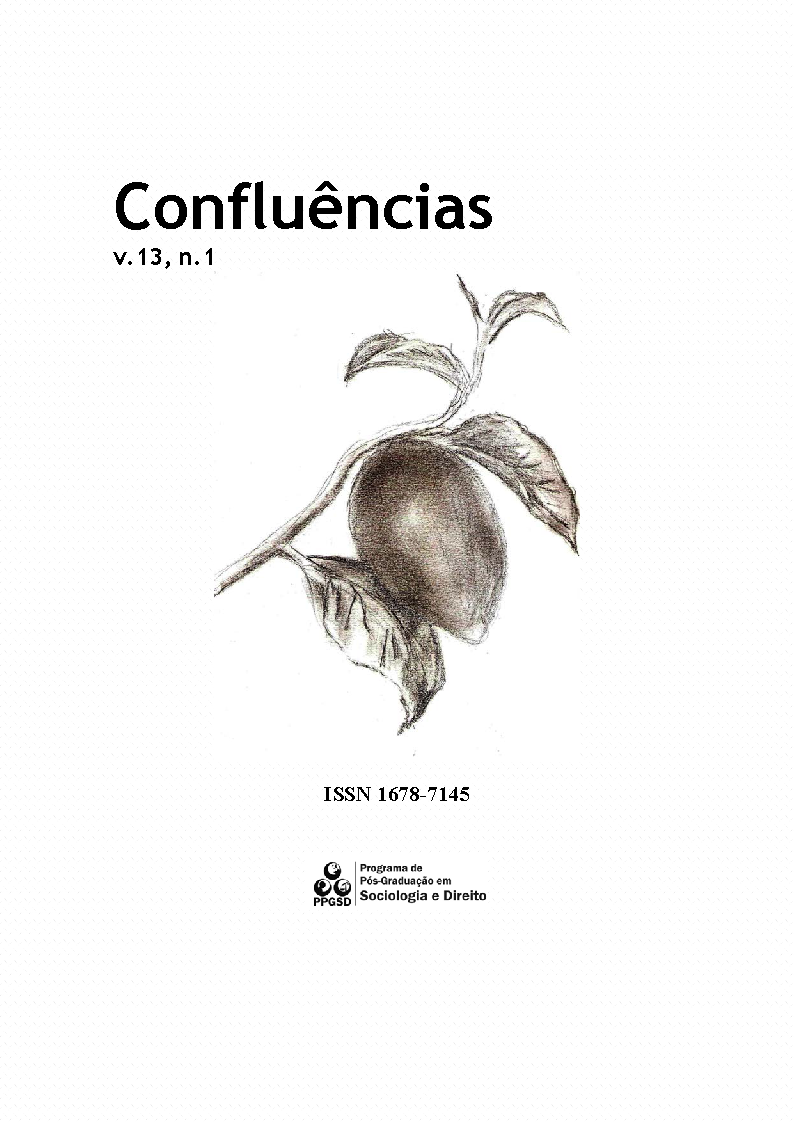CORTEM AS CABEÇAS: A CONSTRUÇÃO DOS ACESSOS E DIREITOS DA MULHER NO OITOCENTOS
DOI:
https://doi.org/10.22409/conflu13i1.p167Keywords:
Women, Criminality, Rights, County of VitóriaAbstract
The historiography has built a certain image of women in the nineteenth century as being docile, fragile, tied to the family and subjected to the domestic obligations. This century was responsible for accentuating the rationality of harmonious sexual division. It would be up to man the command role in social spheres while the woman should be satisfied with the submission. However, these assertives do not show the search of the women, even in the nineteenth century, for accesses and rights. The women went to fight together with men for better working conditions, higher wages and led to food riots. In other words, women moved spaces whose occupation was predominantly female. In Brazil of the nineteenth century is possible to find women who, like the "men of letters," wrote stories for newspapers, participated in abolitionist clubs or simply denounced their violent husbands to the police. The roles of submission, weakness and docility of women can not be verified in practice without the necessary resistence and irresignation wich marked the authoritarian impositions. This is what was found in a survey of the criminal cases and police matches involving women in the District of Vitória /ES, recorded between the years 1850 and 1871. Even without the knowledge of the juristical ordersthese women showed that inequality should not be tolerated and received from the society, through the decisions of the judging instances, certain support and sympathy for their situation. From the evidentiary method and qualitative analysis of the sources was perceived as ordinary women drove to the police and judicial authorities to require the application of laws in resolving their disputes.
Downloads
References
ARQUIVO PÚBLICO DO ESTADO DO ESPÍRITO SANTO. Série Inquéritos Policiais,
Fundo Polícia, 1850-1871.
BARDIN, Laurence. Análise de Conteúdo. 3 ed. Lisboa: Ed: 70, 2007.
CAMPOS, Adriana Pereira. Nas barras dos tribunais: direito e escravidão no Espírito Santo
do século XIX. RJ: UFRJ/IFCS, 2003 (Tese de doutorado).
CAMPOS,Adriana Pereira & PIETRO, Viviani Betzel Del. Júri no Brasil Império: polêmicas
e desafios. In: RIBEIRO, Gladys Sabina (Org.). Brasileiros e cidadãos. 1 ed. São Paulo:
Alameda, 2008, v. 1, p. 227-256.
DIAS, Maria Odila da Silva. Quotidiano e poder em São Paulo no século XIX. 2. ed. São
Paulo: Brasiliense, 1995.
FARIA, Sheila de Castro. A colônia em movimento: fortuna e família no cotidiano colonial.
Rio de Janeiro: Nova Fronteira, 1998.p.63.
MATOS, Hebe Maria. Das cores do silencio. Os significados da liberdade no sudeste
escravista - Brasil, Séc. XIX. 2. ed. Rio de Janeiro: Nova Fronteira, 1998.
MATOS, Maria Izilda S. de. Por uma história da mulher. SP: EDUSC, 2000
PERROT, Michelle. Os excluídos da história: operários, mulheres e prisioneiros. Rio de
Janeiro: Paz e Terra, 2001
PINSKY, Carla Bassanezi; PEDRO, Joana Maria. Igualdade e especificidade. In: PINSKY,
Carla Bassanezi; PINSKY, Jaime (orgs). História da Cidadania. São Paulo: Contexto, 2003.
SCHWARTZ, Cleonara Maria. Cultura e produção escrita no início da escolarização formal
da mulher capixaba (1845 a 1850) In: FRANCO, Sebastião Pimentel. História e educação:
em busca da interdisciplinariedade. Vitória: EDUFES, 2006.
SOARES, G. A. Cotidiano, sociabilidade e conflito em Vitória no final do século XIX.
Dimensões – Revista de História da Ufes, nº16, p.57-80, 2004.
VELLASCO, Ivan de A. Projeto Fórum Documenta: breves reflexões sobre uma experiência
de preservação, pesquisa e divulgação de acervos judiciais. In: RIBEIRO, G.S; NEVES, E.
A.;FERREIRA, M.F.C.M(Org.). Diálogos entre Direito e História: cidadania e justiça.
Niterói: Universidade Federal Fluminense, 2009, p. 339-356.







